- Home
- M. L. Buchman
Hot Point
Hot Point Read online
Thank you for purchasing this eBook.
At Sourcebooks we believe one thing:
BOOKS CHANGE LIVES.
We would love to invite you to receive exclusive rewards. Sign up now for VIP savings, bonus content, early access to new ideas we're developing, and sneak peeks at our hottest titles!
Happy reading!
SIGN UP NOW!
Also by M.L. Buchman
The Night Stalkers
The Night Is Mine
I Own the Dawn
Wait Until Dark
Take Over at Midnight
Light Up the Night
Bring On the Dusk
The Firehawks
Pure Heat
Full Blaze
Copyright © 2015 by M.L. Buchman
Cover and internal design © 2015 by Sourcebooks, Inc.
Cover art by Don Sipley
Sourcebooks and the colophon are registered trademarks of Sourcebooks, Inc.
All rights reserved. No part of this book may be reproduced in any form or by any electronic or mechanical means including information storage and retrieval systems—except in the case of brief quotations embodied in critical articles or reviews—without permission in writing from its publisher, Sourcebooks, Inc.
The characters and events portrayed in this book are fictitious and are used fictitiously. Any similarity to real persons, living or dead, is purely coincidental and not intended by the author.
Published by Sourcebooks Casablanca, an imprint of Sourcebooks, Inc.
P.O. Box 4410, Naperville, Illinois 60567-4410
(630) 961-3900
Fax: (630) 961-2168
www.sourcebooks.com
To the librarian at the Museum of Flight at Boeing Field. You know why, and all my thanks for it!
Contents
Front Cover
Title Page
Copyright
Chapter 1
Chapter 2
Chapter 3
Chapter 4
Chapter 5
Chapter 6
Chapter 7
Chapter 8
Chapter 9
Chapter 10
Chapter 11
Chapter 12
Chapter 13
Chapter 14
Chapter 15
Chapter 16
Chapter 17
Chapter 18
Chapter 19
Chapter 20
Chapter 21
Chapter 22
Chapter 23
Chapter 24
Chapter 25
A Sneak Peek at Target Engaged
About the Author
Back Cover
Chapter 1
The sharp warning buzz of a critical system’s failure crackled through Vern Taylor’s headset.
A momentary panic hit him as palpably as the time Mickey Hamilton had gotten drunk and decided that plowing a fist into Vern’s chin made some kind of sense.
Vern had just flown his helicopter down into the critical “death zone.” Helicopters that broke between fifty and four hundred feet above the ground were in a really bad place—too high to safely crash and too low to stabilize and autorotate in.
A glance out the window didn’t improve the news. The Mount Hood Aviation firefighters’ airfield was still two miles ahead. Below him was nothing but a sea of hundred-foot fir trees covering rugged, thousand-foot ridges.
So screwed!
Meanwhile, the more rational part of his brain—that the U.S. Coast Guard had spent six years investing so heavily in training and that four more years of flying to fire had honed—was occupied with checking his main screen on the helicopter’s console.
He located the flashing, bright red warning. Hydraulic failure in the primary circuit.
He smelled no burning rubber or hot metal.
Several things happened simultaneously.
The first thing was being seriously ticked off that the helicopter was trying to kill him.
Vern had been type-certified in the massive, ten-thousand-pound firefighting helicopter for precisely thirty-two hours and—a glance at the console clock—seventeen minutes. It simply wasn’t fair to be killed on his second day flying this sweet machine.
The second thing that happened was he actually read the flashing message: #2 PRI SERVO PRESS. The backup hydraulic-pressure warning system wasn’t reporting any problems, which meant it was still running to cover the failure of the #2 pump’s pressure.
Vern double-checked.
No secondary alarm.
He wiggled the cyclic joystick control with his right hand, which altered the pitch of the blades to control his direction of flight.
His chopper wiggled exactly as it should. The back pressure of the controls against his dry palm felt normal.
He tried restarting his breathing. That worked as well.
Then—with the practice of a hundred drills that had felt like a thousand under MHA’s chief pilot Emily Beale’s watchful eye—his left hand came off the collective control alongside his seat long enough to grab the correct circuit breaker among the eighty other breakers, switches, and controls that made up the overhead console attached to the chopper’s ceiling.
He pulled on the breaker that shut down the #2 Primary Servo pump.
The alarm went silent, and the blinking red warning on the screen shifted to a steady red glow. Then his hand returned to the collective, completing everything that really needed doing.
The third thing that happened—all in the same moment, as far as he could ever recall—was the thought that Denise Conroy, Mount Hood Aviation’s chief mechanic, was going to kill him even if the helicopter had decided not to. Breaking one of Denise’s birds on your second day flying it solo and expecting to survive unscathed was downright foolhardy.
The pilots generally agreed that upsetting the head of MHA’s helicopter maintenance team was not to be considered a life-prolonging experience.
Nor was disappointing Emily Beale, who had only certified him in the Firehawk yesterday morning. The four years he’d flown the little MD500 for MHA wouldn’t count for squat if he dinged up their newest twenty-million-dollar bird.
He followed the other two Firehawks back into camp. They were the massive Type I juggernauts of the heli-tack firefighting world, able to deliver a thousand gallons of water and foam or retardant to a wildfire. Only a few helicopters could carry more, and those were all far less agile machines. This chopper ruled the wildfire helitack sweet spot.
The Mount Hood Aviation Firehawks were painted gloss black, and with the red-and-orange racing flames of the MHA logo running from the nose down the sides, they looked as cool and powerful as they really were.
The Firehawks were built from Sikorsky Black Hawk helicopters. Each one was an eight-foot-high, ten-foot-wide, and forty-foot-long nasty-looking machine. Black Hawks, no matter how prettily painted, always appeared to be looking for a fight. They were the tough boys on the block, even if the two in front of him were flown by women: Emily, ex-military and kind of terrifying, truth be told, and Jeannie, one of the most competent and prettiest fliers he’d ever met.
How in the hell had some photographer guy snapped her up? Jeannie was awesome. Not that they’d ever done more than fly together—it wasn’t like that between them—but seeing her look so damn happy emphasized how totally lame his own relationships had been.
Closing his eyes for a moment, Vern braced himself. Stepping on the rudder pedal, he twisted the tail of the five-ton helicraft to the side, then shifted the cyclic joystick in his right hand to compensate. Again, it felt completely normal, proving that the backup hydraulic system was indeed operational, even if his breathing still sounded harsh over the headset and microphone system he wore. He remained in formation with the other choppers but now flew mostly sideways in order to look behind him.
He opened one eye. A cloud of black smoke was streaming from his chopper. No sign of a fire warning on the instrument panel, so it was just the burning off of some hydraulic fluid that had spilled before the pressure loss was detected and he’d shut down the pump. They were under two minutes from Mount Hood Aviation’s Hoodie One base camp.
Not enough time to burn everything off. Thankfully none of the fumes—nasty, astringent stuff—had leaked into the cabin. Vern realigned the controls to once again face forward and retain his position in the flight. He also managed to convince his breathing that he was back in control.
The MHA airfield and base camp lay less than a mile ahead now. They were perched low on the northern side of the towering mass of Mount Hood—eleven thousand feet of dormant, mostly, ice-capped volcano. The airfield was easy to miss among the towering fir trees and the vibrant yellows and reds of September aspens and maples.
It was the end of day, so the mountain’s shadow already lay long across the camp, and the grass airstrip was not empty like he’d hoped. The four smaller choppers of MHA’s seven-bird fleet had already returned, parked along the north side of the strip close to the towering Douglas fir trees that defined that side of the base. Pilots and ground crew were milling around them.
Along the other side of the field were the low buildings of the long-defunct kids’ summer camp that MHA had taken over. Though much of the structures’ dark wood was covered with green moss, like so much else in the Pacific Northwest, the buildi
ngs were dry and warm inside.
But were the other pilots, ground crew, and smokejumpers tucked away safe and warm?
No such luck.
They seemed to think that just because it was a beautiful, late-September afternoon, everyone should be out at the cluster of picnic tables that served as the camp’s main hangout. As he neared, he could see the dots of their bright faces turning like damned daisies following the sun—all tracking the path of his smoking flight.
And sure enough, the nightmare awaited.
There at the end of the row of four already-parked choppers and the two smokejumper delivery planes was the maintenance truck. In front of the truck stood five feet and four inches of livid woman with dark blond hair down her back—her feet planted as if part of the mountain’s basalt shield. Though not close enough to see, he knew she’d be standing with her arms crossed over one of the nicest chests he’d ever seen.
He could feel the burn of her glare at a thousand yards out.
Vern followed the other two Firehawks in for a landing, Denise coming into focus as he approached. Jeans, T-shirt, and a canvas vest that had once been beige before it spent years being worn around broken helicopters. She wore a tool belt like an Old West gunslinger. Damn, she was gorgeous and cute at the same time. And about the most unapproachable woman he’d ever met.
A single drop of salty sweat dripped into his eye and stung. He sniffed the air again—no smell of fire other than the bit of wood char that you always picked up flying over a wildland fire.
A glance back as he hovered, spun into place, and set his bird down on the markers. Yep, still smoking black.
Denise was going to do more than kill him; that would be too kind.
She was going to outright annihilate him.
He hoped that she at least waited until after he was done landing before she did so.
* * *
“What did you do to my poor bird?” Denise Conroy heaved open the cargo bay door and spoke to Vern Taylor’s back in the pilot seat. She reached up and pulled down on the gust lock in the middle of the rear cabin’s ceiling. That would keep the rotor blades from turning unexpectedly once she climbed atop the helicopter to check the engine.
“Broke it,” was his sassy reply.
“I guessed that much. Confirm ignition key in the off position,” she called out even though she could see forward between the seats to the center console that it already was. Outside the front windscreen she could see Mickey and Bruce pressing their faces up against the windscreen and making funny faces at Vern, blowing out their cheeks like puffer fish or three-year-olds.
“Confirm off and out.” Vern pulled the key free and dropped it on the center console of radios that ran between the pilot and copilot’s seats. Then he gave the finger to his juvenile buddies who laughed and moved on. She made a mental note to wash the outside of the pilot’s side windscreen—while wearing gloves.
She stepped back outside, slid the big door shut with perhaps a bit more force than she should have, and climbed on top of the Firehawk helicopter using the notches built into the section of the helicopter’s hull that had been covered by the door. Denise began peeling off the cowling of the Number-Two turbine engine, being careful of the still blazing-hot exhaust. She could feel the radiant heat on her cheeks as soon as the sheet metal was shifted aside.
The stink of scorched, high-temp phosphate hydraulic fluid made her glad for the slight breeze that was wafting it away. She pulled on goggles and neoprene gloves so that the acidic fluid wouldn’t splash in her eyes or sting her hands.
The cause of the failure was instantly apparent from the spray pattern. The side of a hose had split and shot out a broad fan of pressurized fluid. Some of it had puddled, and some of it had struck the engine and been vaporized.
Vern finished filling out his log as if everything was absolutely normal before climbing down from his seat.
“You do know, Vern, busting a bird when you’ve had it less than two days really puts you on my bad list.” Denise jerked out a wrench to loosen the blown hose, but in her nervousness, she scattered several other tools as she did so. She gathered them back up as quickly as she could. How had she even spoken that way to a pilot?
Vern didn’t sound the least bit put out by her tone. “The few, the proud, the helitack firefighter pilots of MHA. We’re all in the crapper with you, Wrench. How are we supposed to fly to fire without actually using your helicopters? That’s the puzzle, isn’t it?”
She shifted her scowl from the engine and aimed it down at him.
Vern leaned with his back against the pilot’s door of the helicopter, staring off into the distance as if completely unconcerned about the midair breakdown and oblivious to her conflicted emotions.
It was her fault that the pilot had been placed in danger.
And Vern was teasing her about it. He was tall enough that the top of his head was almost close enough for her to swing down and rap it sharply with the wrench in her hand, which might cheer her up a bit. But he wasn’t the problem, so she rammed the wrench back into her tool belt, knocking a few other tools loose that she then had to retrieve from the helicopter’s innards.
She really shouldn’t be aiming her anger at him; it was she herself that she was furious with. She’d sent a bird aloft that had broken in the sky. That was wholly unforgivable. Her pilots counted on her to provide safe, airworthy equipment, and she’d failed one of them.
Firehawk Oh-Three had been in the Mount Hood Aviation inventory for less than a month, and now it had blown a hydraulic line. Thankfully, Vern hadn’t been in any danger from the failure—the backup system had taken the load. But she’d thought the bird was clean when she signed off on the airworthiness certificate, something she’d done every day for a month.
It definitely wasn’t clean at the moment. In addition to the blown hose itself, hydraulic leaks were messy and took time to clean up. Furthermore, the fluid that sprayed into the engine, which hadn’t cared in the slightest, had caused the trail of acrid black smoke that had scared the daylights out of her. She’d had to wrap her arms around herself to hold herself together until Vern set the bird safely on the ground. The burn-off of fluid had also added to the mess with sticky exhaust particulate sheathing the rear half of the pretty black-and-flame paint job.
“I can feel you aiming nasty thoughts down at me.” Vern rubbed a hand on the top of his head as if it was getting hot. Then he turned to look up at her. His lean face was rich with a summer’s tan. His mirrored shades hid the dark eyes that matched hair that, in her more psychotic moments, she’d occasionally fantasized toying with. “Anything I can do to help?”
“Not unless you’re planning to break something else on my helicopter, Slick. Go away. You’re distracting me.” And he was. Denise had some principles, and those included not getting sucked in by the charm of a handsome flyboy. The last time she had let that happen was…a long time ago, and it wouldn’t be happening now.
“Yes, ma’am, Wrench, sir.” Then he saluted, hitting his forehead hard enough to pretend he was knocking himself silly.
No matter how handsome and charming he was, she would not be tempted.
She lifted the exact implement that had earned most mechanics the Wrench nickname and he stumbled back, raising his hands in mock terror.
He pulled a black, Mount Hood Aviation billed hat out of his back pocket and tugged it on before shooting her one of his cockeyed grins. The blazing red-and-orange MHA logo offered her a tempting target. Maybe if she had a tennis ball handy she’d bean him one.
“Make me proud, Wrench.”
“Fall down a gopher hole, Slick.” Again? Had she really sassed a pilot? That wasn’t anything the Denise she knew would ever do.
He tipped his hat and headed across the narrow grass airstrip of the Hoodie base camp. On his third step he stumbled badly, pretending to fall into a gopher hole.
Denise laughed. Of the many jokers among the crews, Vern was the only one who consistently made her want to laugh. Though not usually out loud.
She watched him walk off. Had she just been flirting with him? She’d never been any good at it, so she couldn’t be sure. He didn’t fly a Huey UH-1 “Slick” helicopter, but she liked how the nickname fit him. Nicknames were another thing she rarely used correctly. Yet another reason not to become involved with flyboys who seemed to live by them. For example, Mickey was usually… She couldn’t even remember. Hopeless. Absolutely hopeless.

 White Top
White Top Thunderbolt
Thunderbolt Storm's Gift
Storm's Gift The Complete Delta Force Shooters
The Complete Delta Force Shooters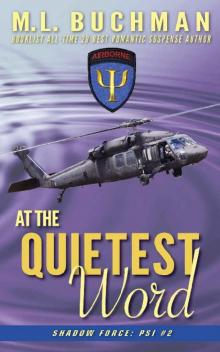 At the Quietest Word (Shadowforce: Psi Book 2)
At the Quietest Word (Shadowforce: Psi Book 2) At the Slightest Sound
At the Slightest Sound Dilya's Christmas Challenge
Dilya's Christmas Challenge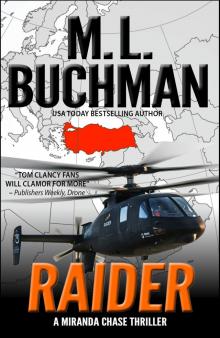 Raider
Raider Havoc
Havoc Carrying the Heart's Load
Carrying the Heart's Load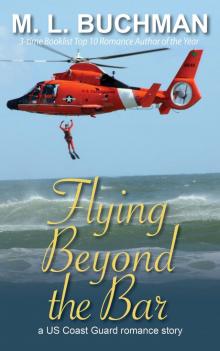 Flying Beyond the Bar
Flying Beyond the Bar Firelights of Christmas
Firelights of Christmas Where Dreams Are Well Done
Where Dreams Are Well Done Nathan's Big Sky
Nathan's Big Sky Heart of a Russian Bear Dog
Heart of a Russian Bear Dog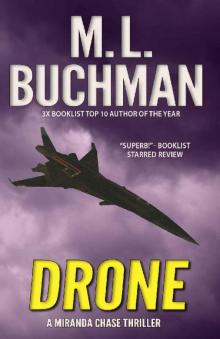 Drone: an NTSB / military technothriller (Miranda Chase Book 1)
Drone: an NTSB / military technothriller (Miranda Chase Book 1) Flower of Destiny
Flower of Destiny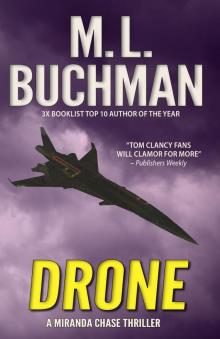 Drone
Drone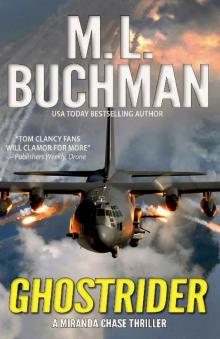 Ghostrider: an NTSB-military technothriller (Miranda Chase Book 4)
Ghostrider: an NTSB-military technothriller (Miranda Chase Book 4) Wild Fire
Wild Fire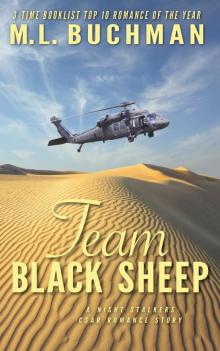 Team Black Sheep
Team Black Sheep The Complete Delta Force Warriors
The Complete Delta Force Warriors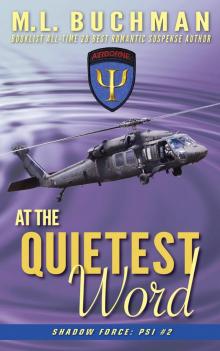 At the Quietest Word
At the Quietest Word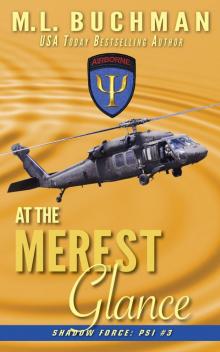 At the Merest Glance
At the Merest Glance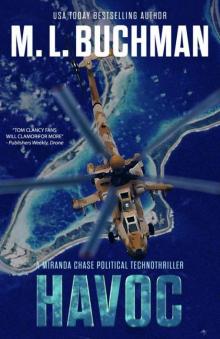 Havoc: a political technothriller (Miranda Chase Book 7)
Havoc: a political technothriller (Miranda Chase Book 7) White Top: a political technothriller (Miranda Chase Book 8)
White Top: a political technothriller (Miranda Chase Book 8) Between Shadow and Soul
Between Shadow and Soul Island Christmas
Island Christmas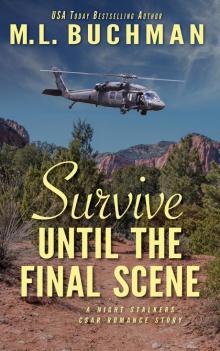 Survive Until the Final Scene
Survive Until the Final Scene Midnight Trust
Midnight Trust Return to Eagle Cove
Return to Eagle Cove Where Dreams Reside
Where Dreams Reside Honor Flight
Honor Flight Where Dreams Are Sewn
Where Dreams Are Sewn The Complete Hotshots
The Complete Hotshots Condor
Condor I Own the Dawn
I Own the Dawn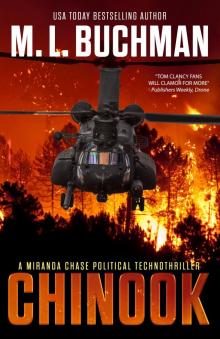 Chinook
Chinook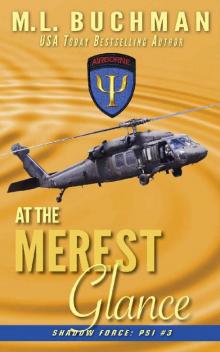 At the Merest Glance: a military paranormal romance (Shadowforce: Psi Book 3)
At the Merest Glance: a military paranormal romance (Shadowforce: Psi Book 3) Since the First Day
Since the First Day Thunderbolt: an NTSB / military technothriller (Miranda Chase Book 2)
Thunderbolt: an NTSB / military technothriller (Miranda Chase Book 2) For Her Dark Eyes Only
For Her Dark Eyes Only Play the Right Cards
Play the Right Cards Lost Love Found in Eagle Cove
Lost Love Found in Eagle Cove Big Sky Ever After: a Montana Romance Duet
Big Sky Ever After: a Montana Romance Duet Keepsake for Eagle Cove
Keepsake for Eagle Cove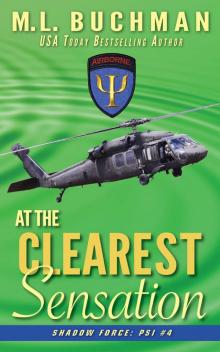 At the Clearest Sensation
At the Clearest Sensation The Ides of Matt 2015
The Ides of Matt 2015 When They Just Know
When They Just Know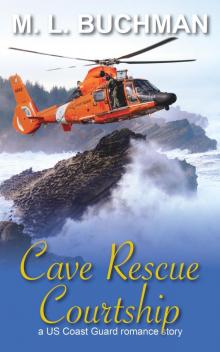 Cave Rescue Courtship
Cave Rescue Courtship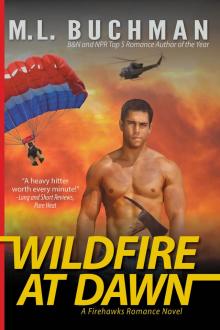 Wildfire at Dawn
Wildfire at Dawn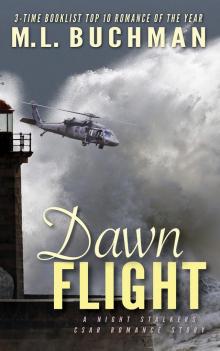 Dawn Flight
Dawn Flight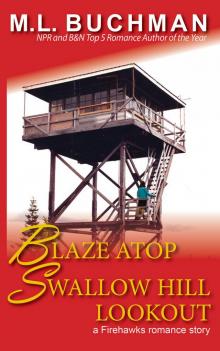 Blaze Atop Swallow Hill Lookout
Blaze Atop Swallow Hill Lookout The Sword of Io
The Sword of Io Christmas at Steel Beach
Christmas at Steel Beach Heart's Refuge
Heart's Refuge By Break of Day (The Night Stalkers)
By Break of Day (The Night Stalkers) Kee's Wedding
Kee's Wedding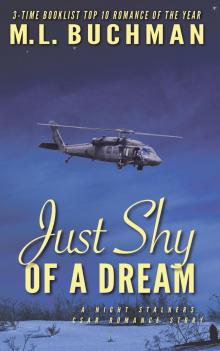 Just Shy of a Dream
Just Shy of a Dream Path of Love
Path of Love Ghost of Willow's Past
Ghost of Willow's Past Flash of Fire
Flash of Fire Target of the Heart
Target of the Heart Sound of Her Warrior Heart
Sound of Her Warrior Heart Target of Mine: The Night Stalkers 5E (Titan World Book 2)
Target of Mine: The Night Stalkers 5E (Titan World Book 2) The Complete Where Dreams
The Complete Where Dreams Target of One's Own
Target of One's Own For All Their Days
For All Their Days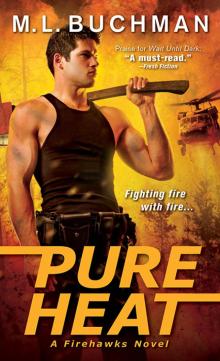 Pure Heat
Pure Heat Love's Second Chance
Love's Second Chance Target Engaged
Target Engaged Bring On the Dusk
Bring On the Dusk Wait Until Dark (The Night Stalkers)
Wait Until Dark (The Night Stalkers) Big Sky, Loyal Heart
Big Sky, Loyal Heart Welcome at Henderson's Ranch
Welcome at Henderson's Ranch Damien's Christmas
Damien's Christmas Flight to Fight
Flight to Fight Nara
Nara Looking for the Fire
Looking for the Fire Love Behind the Lines
Love Behind the Lines Peter's Christmas
Peter's Christmas In the Weeds
In the Weeds Christmas at Henderson's Ranch
Christmas at Henderson's Ranch They'd Most Certainly Be Flying
They'd Most Certainly Be Flying Fire at Gray Wolf Lookout (Firehawks Book 8)
Fire at Gray Wolf Lookout (Firehawks Book 8) Wildfire on the Skagit (Firehawks Book 9)
Wildfire on the Skagit (Firehawks Book 9) A Hotshot Christmas
A Hotshot Christmas Off the Leash
Off the Leash Where Dreams Books 1-3
Where Dreams Books 1-3 Guardian of the Heart
Guardian of the Heart The Ides of Matt 2017
The Ides of Matt 2017 Where Dreams Unfold
Where Dreams Unfold Twice the Heat
Twice the Heat Wild Justice (Delta Force Book 3)
Wild Justice (Delta Force Book 3) Flying Over the Waves
Flying Over the Waves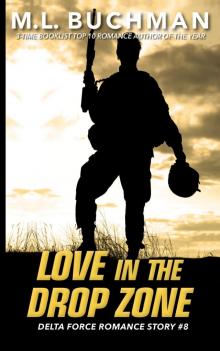 Love in the Drop Zone
Love in the Drop Zone I Own the Dawn: The Night Stalkers
I Own the Dawn: The Night Stalkers What the Heart Holds Safe (Delta Force Book 4)
What the Heart Holds Safe (Delta Force Book 4) The Christmas Lights Objective
The Christmas Lights Objective Road to the Fire's Heart
Road to the Fire's Heart Night Rescue
Night Rescue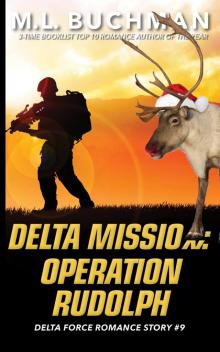 Delta Mission: Operation Rudolph
Delta Mission: Operation Rudolph Full Blaze
Full Blaze Night Is Mine
Night Is Mine Lightning Strike to the Heart
Lightning Strike to the Heart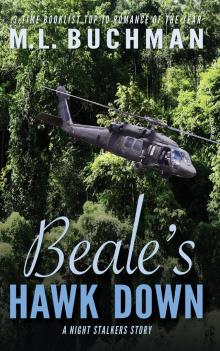 Beale's Hawk Down
Beale's Hawk Down Circle 'Round
Circle 'Round Cookbook from Hell Reheated
Cookbook from Hell Reheated Zachary's Christmas
Zachary's Christmas Reaching Out at Henderson's Ranch
Reaching Out at Henderson's Ranch Fire Light Fire Bright
Fire Light Fire Bright The Ides of Matt 2016
The Ides of Matt 2016 Her Heart and the Friend Command
Her Heart and the Friend Command On Your Mark
On Your Mark Swap Out!
Swap Out! Heart of the Cotswolds: England
Heart of the Cotswolds: England The Phoenix Agency_The Sum Is Greater
The Phoenix Agency_The Sum Is Greater Wildfire at Larch Creek
Wildfire at Larch Creek Target Lock On Love
Target Lock On Love Second Chance Rescue
Second Chance Rescue Where Dreams Are Written
Where Dreams Are Written First Day, Every Day
First Day, Every Day Christmas at Peleliu Cove
Christmas at Peleliu Cove Heart Strike
Heart Strike Man the Guns, My Mate
Man the Guns, My Mate Emily's Wedding
Emily's Wedding Daniel's Christmas
Daniel's Christmas Frank's Independence Day
Frank's Independence Day The Phoenix Agency: The Sum Is Greater (Kindle Worlds Novella)
The Phoenix Agency: The Sum Is Greater (Kindle Worlds Novella) Roy's Independence Day
Roy's Independence Day